- Home
- P. G. Wodehouse
Wodehouse at the Wicket: A Cricketing Anthology Page 2
Wodehouse at the Wicket: A Cricketing Anthology Read online
Page 2
By 1900, in his final year, Wodehouse had not advanced from No.11, but he did have a significant No.10 ahead of him – N.A. Knox, whose career has been recorded earlier. His great achievement with the ball came for the Remove in June, against Modern VI, when he missed by a whisker the bowler’s Holy Grail of ten wickets in an innings. He dismissed the first nine batsmen – eight bowled, one lbw – before a change bowler in Ransford pinched the No.11: Plum’s figures were 9/14 off 23 overs, with nine maidens. He also took 6/23 off 17.5 overs (five maidens), to give him a remarkable match analysis of 15 wickets for 37 runs – not to mention making 20 and 14.
Dulwich massacred Brighton, beat Tonbridge easily, drew creditably against Corpus Christi – and then we have for the first time a sight of the marvellous Wodehouse literary style (the report is unsigned, but there can be little doubt of the author).
This was College v. Masters, reported for The Alleynian with comments such as: ‘Messrs Doulton and Douglas began treating the bowling in an indecently frivolous manner, with fours and other varieties in abundance’.
The Masters made 127, and the School replied: ‘With the last man but one in, we had a margin of five runs. Then the telegraph [scoreboard] began to show an unaccountable flippancy at such a crisis. First it encouraged us with a score of 124, then when we were not looking, it changed to 127. Despair reigned supreme. Suddenly back it went to 126, and as the last man fell at that score, we thought we had saved the match. But before we reached the pavilion, 127 was again registered, and the most the frenzied team could do, was to do for the scorer – a congenial task, and neatly carried out’. Wodehouse made his usual duck, but was beginning to find his metier.
The Alleynian summed up his career in that farewell season: ‘A fast righthand bowler with a good swing, although he does not use his head enough. As a bat, he has very much improved, and he gets extraordinarily well to the pitch of the ball. Has wonderfully improved in the field, though rather hampered by his eyesight’.
MCC included Dulwich in its school matches in the Wodehouse years: on 21 June, 1899, the college played host to MCC & Ground (i.e. the visitors including professionals from the Lord’s ground staff, primarily to do the hard work of bowling, while the MCC amateurs could enjoy themselves batting).
This match was inconclusive: Dulwich made 99 and MCC 101, the College batting again for 4/74: Wodehouse at No.11 was bowled for his usual duck by the Kent professional G.G. Hearne (an all-rounder who played one Test in South Africa in 1891-92) – and took no wickets.
A year later MCC made 200, with Wodehouse getting two wickets: the college scored 7/135, and he did not bat. The most notable member of the visiting team, which included seven past or current first class players, was the lordly K.J. Key, who skippered Surrey from 1894 to 1899, and would certainly have been an heroic figure to Wodehouse, who was a Surrey supporter.
Despite these contacts, Wodehouse did not become an MCC member. It was not until 1920 that he joined a first-class club – and then it was Surrey, rather than MCC or even Middlesex. He remained a member for just four years, alongside his brother Armine: Surrey’s home ground, The Oval, was where Wodehouse watched most of his first-class cricket.
He shared a study and dormitory at Treadgold’s for 14 months, from May, 1898, with Bill Townend, a friend and regular correspondent for the rest of his life, who also was intent on making a living as a writer (to much good advice and occasional more practical help from Wodehouse). The choice of house and housemaster may have been a factor in developing the Wodehouse love of cricket: J.G. Treadgold had been master in charge of Dulwich cricket since 1876, and he had done much to put the game on an efficient and whole-hearted basis.
Given his enthusiasm for Dulwich cricket and its cricketers, it is ironic that the last direct Wodehouse involvement with the 1st XI was to prove a doleful occasion. In Performing Flea, Townend records the final Wodehouse visit to Dulwich and England. ‘In the latter end of July, 1939, Plum was over briefly from Le Touquet, where he lived, and on the Saturday he and I went to Dulwich together to see the school play St Paul’s, and it was the dullest cricket match, the slowest and most uneventful that either of us had ever seen. I said goodbye to Plum at about 4 o’clock, and left him seated in the pavilion, looking rather bored and rather disconsolate. That was the last time I saw him. Six weeks later, war was declared.’
In The Alleynian of the same month, Wodehouse described this, his last Dulwich match as ‘This frightful game, probably the dreariest ever seen on the school grounds’. But in the contradictory fashion of cricket, the Dulwich XI of that year achieved considerable success and fame, with Trevor Bailey and A.W.H. Mallett its stars, although the St Paul’s XI is forgettable and forgotten.
Wodehouse’s report includes the much-quoted reference, ‘Bailey awoke from an apparent coma to strike a four’. Trevor Bailey, the finest modern player to come from Dulwich, can laugh at this today, but at the time was rather hurt: in 1994 he recalled that he felt it a little unfair as ‘I had quite a good match’ (he took five wickets and made 41 not out in the single innings game).
However Bailey knew of the depth of Wodehouse devotion to Dulwich and its cricket from the previous season, when at 14 years of age, he had been a member of the 1st XI which went through unbeaten. Captain A.C. Shirreff recalled how Wodehouse responded to the achievement: ‘He sent me what he termed “a purse of gold to buy bats with” – it was a five pound note actually, and we went to the Palladium and had a meal with it, and I still had change.’
Wartime distance and disruption did not erode the Wodehouse nostalgia for his school, or his interest in its students. On 22 April, 1945, he wrote to Townend from Paris to say he had been sent Dulwich Year Books for 1943 and 1944, ‘which I was delighted to have, though it was saddening to see the Roll of Honour. Quite a few of the names were of chaps I knew slightly as members of the cricket and football teams. I see a fellow named Darby who was in the cricket team of 1935, and wrote to thank me for a notice I gave him of my report of the Tonbridge match.
‘By the way, was 1944 a very wet summer in England? I ask because that was the year we won all our seven school cricket matches, and the lad at the head of the batting averages has an average of 25. We seem to have outed the opposition for about 83 and then to have made 84 for eight ourselves. The top score seems to have been 60. Very odd’.
May 22 brought a Wodehouse declaration that he was ‘in a state of suspense, wondering if Billy Griffith is playing for England in the Test at Lord’s. The Paris Daily Mail gave the list of the team, and said: “Either Griffith or Evans will keep wicket.” The report of the first day’s play merely gives the score, and today’s paper does the same, plus a description of the Australian innings. I am going down to town this afternoon in the hope of finding an English paper. I am hoping that Billy got in all right.’
That Old Alleynian and long-time Wodehouse friend (although 33 years his junior), Lieut. Col. S.C. ‘Billy’ Griffith did indeed make his representative debut, taking four victims, but failing with the bat and unable to prevent Lindsay Hassett’s Australian Services XI from winning by six wickets what was officially not a Test, but a ‘Victory Match’.
In 1950 Wodehouse wrote to Townend of chairing the Old Alleynians dinner in New York, attended by ten ex-Dulwich students – it was a joy, he wrote, to discuss matters such as whether it was 56 or 65 that R.J. Jones made against St Paul’s in 1911. (This may be a rough recall of R.K. Nunes, the first West Indies Test captain, in England in 1928, who topped the 1911 Dulwich batting with 770 runs at an average of just under 60).
Memory may have been fallible – but affection for the old school, its players and its times, was constant and everlasting.
One final pointer to the hold of Dulwich for its most romantic Old Boy is recorded in the college history, God’s Gift. A Wodehouse letter explained how he once gave up the chance of earning an estimated 50,000 dollars by writing the lyrics for a musical ‘because the cable putting up the offer arrived
just when the Dulwich team was going great guns, and I couldn’t bring myself to miss the Haileybury match’.
2 Post-Dulwich: Player and Enthusiast
Suddenly Dulwich days were at an end, and like his schoolboy hero Mike (who had expected to go to Cambridge), Wodehouse was deprived of an anticipated Oxford place, primarily because his father’s finances had fallen away. The departing student had worked hard for a classics scholarship to Oriel College, but had to drop out before sitting the exam. In September, 1900, a few weeks before his nineteenth birthday, he was engaged by the Hongkong and Shanghai Bank in Lombard Street, in the heart of the City of London’s financial district.
Freelance writing had already begun in February with his first paid contribution, an article in The Public School Magazine: ‘Some Aspects of Games Captaincy’ brought half a guinea. (The author had not enjoyed any captaincy experience at anything, but here as throughout his writing, shrewd observation and readiness to venture served him well).
But if Wodehouse soon convinced not only himself but also his superiors that he was a misfit as a bank clerk, then he fitted well enough into bank social life, where – again as with Mike – his colleagues were public school men of his own vintage and interests. He joined the bank rugby and cricket teams: a picture is preserved showing the young Wodehouse suitably stern in rugger kit, although no-one has found any similar record with the bank XI.
London bank cricket was becoming increasingly well organised in Edwardian times, all the major banks owning well-appointed grounds in the outer suburbs. The Hongkong and Shanghai had facilities at Beckenham, now used by the Midland Bank. But sadly there is no sign of any Hongkong and Shanghai match records from Wodehouse’s time. The one cricketing record is of Wodehouse as spectator rather than player – a spectator at one of the great matches in Test history.
Ronald Mason in his collection of essays, Sing All A Green Willow, writes of Wodehouse the bank clerk cutting across the river Thames to The Oval for a long lunch-hour whenever so inspired, and being there on Wednesday, August 13, 1902, the last day of the final Test against Australia – immortalised as ‘Jessop’s Match’.
This was ‘a rainy, disappointing morning’, with England set nearly all day to make 263 – and Wodehouse, one eye on the clock because of that lunch-hour, watched the fall of three batsmen for 10, and two or three overs later, ‘the temporarily merciful interruption of a shower’.
Jessop survived with Jackson to lunch and five wickets down – ‘and with who knows what temptations tearing him in twain, the young P.G. Wodehouse turned his back on The Oval, and went back to the Hongkong and Shanghai Bank’. Mason records the sequel – how Jessop stormed to the most spectacular hundred in the history of the Tests (he hit 104 out of 139 scored while he was at the wicket, reaching three figures in 75 minutes), and Hirst and Rhodes saw England to one-wicket victory as the light worsened and steady rain set in.
‘And while these Olympian and indelible deeds were being enacted, the young P.G. Wodehouse ground resentfully at his ledgers in the bank. He could not have known of what he had missed until, at the very earliest, late that same evening. Possibly not even until next morning, there being no BBC then. And when he did get to know, what a bewildering conflict in his loyal enthusiast’s mind of pride in the achievement, and regret at his own loss …’ Within a month, Wodehouse was to walk out of the bank for good.
The original account of the Wodehouse visit comes in A.A. Thomson’s Cricket My Happiness, published in 1952, in which the author recalls Wodehouse telling him what he had seen, and missed. ‘The story of Jessop’s match has been recalled many times, but I set it down here once more for a particular reason’, Thomson writes. ‘The game was a triumph for England, but fifty years later, I have heard of a tragedy, minor but poignant, connected with it’. He records how Wodehouse – ‘the greatest English humorist since Dickens’ – dashed from the City to The Oval ‘instead of having any lunch, and saw Jackson and Jessop start their stand. He did not even take time to buy a sandwich.
‘Alas, when Jessop had made 39 (this was at lunch), poor Wodehouse had to go, for time and tide and the Hongkong and Shanghai Bank wait for no one. “I always remember” he told me, “how formidable Trumble seemed that day. One got the feeling that he was unplayable. And the wicket was in a terrible state by that time …”’
Thomson understood what it meant for a true cricket-lover to miss such an historic climax. ‘Seeing Jessop make 39 not out of that immortal 104, and not being there at the most dramatic finish in history, must have been like seeing Ellen Terry in the first act of Romeo and Juliet, and then having to leave the gallery because your nose was bleeding. If that had happened to me, I should never have smiled again. It just shows that a noble spirit cannot be quelled …’
And so, after two years of banking (and apparently erratic cricket), Wodehouse resigned his post on 9 September, 1902, so that he could concentrate on freelance writing. Cricket now became something he had to seek out for himself – but if the freelance needed to devote his energies to earning a living rather than relaxing, there was always plenty of cricket for the public school man in those Edwardian days.
Although now fully embarked on his writing career, Wodehouse in his cricketing aspirations fell between two great literary teams. He was too young to have more than brief involvement with J.M. Barrie’s Allahakbarries, and was long settled in America when Sir John Squire’s Invalids made their name in the Twenties, inspiring that epic of a village match against eccentric London visitors, in A.G. Macdonell’s glorious England, Their England.
Barrie founded the Allahakbarries in 1887 (he explained the name was derived from the Arabic invocation ‘Allahakbar’, which he claimed meant Heaven help us; a more accurate translation is simply ‘God is Great’). The first match was a challenge to the Surrey village of Shere where Barrie had walked for years, and their initial foray at the wicket produced just eleven runs. This was hardly surprising, as a couple of his players had never previously held a bat, and had to be instructed on their way to the ground.
The fun of that unique chance to ‘exhibit their skill or incompetence, and to regain their youth’, under Barrie’s irresistible chiding and charm, kept the team going almost until the First World War swept away innocence. Barrie was still to turn up in distinctive team blazer and cap for a match in 1913, aged fifty-three, although the ‘real Allahakbarries’ had ended in 1905.
Wodehouse is thought to have played a few games with Barrie’s bizarre mix of authors, artists, actors and other artistic lights: he was introduced in July, 1904, by Punch’s Owen Seaman, to open the batting at the Black Lake cricket week. But the Allahakbarries were by now beginning to run out of a little steam because of alternative interests, and the passage of the years.
The only known scorebook of this curious team is Barrie’s own book for the seasons 1899-1903, recorded mostly in near-illegible pencil, and held in the MCC Library: Wodehouse had not at that stage made his appearance. Two privately circulated booklets were produced by Barrie on his colourful elevens, but these appeared in 1893 and 1899, when Wodehouse was still a schoolboy, so he is not part of the Allahakbarrie official record.
Wodehouse also enjoyed what should have been much more light-hearted cricket, but quite possibly was more serious – playing at Emsworth House, the preparatory school where his friend Herbert W. Westbrook was an assistant master. On the border of Hampshire and Surrey, the village had a name which was put to good use soon enough: Wodehouse stayed there for six months from January, 1903, on excellent terms with the headmaster, Baldwin King-Hall, who shared his lodger’s enthusiasm for cricket. Wodehouse recalled: ‘We used to play cricket against various teams on the ground, though it was really much too small for grown-up cricket.’
In August, 1903, Wodehouse was named fulltime assistant to Harold Begbie on the Globe ‘By The Way’ column, and had to return to London. This involved a couple of hours urgent work each morning, after which he could turn to other writing.
He recalled: ‘I’d walk back to my lodgings and more or less start work right away, doing short stories and things. I played a certain amount of cricket, and I never really wanted anything to do, I was so keen on my work.’ From around 1903 he played occasional cricket with a Punch XI under the guidance of Owen Seaman, the classicist who edited the humorous magazine in its great days, and later introduced him to J.M. Barrie. He was always on the lookout for the promising writer who could play cricket.
In Edwardian England, the well-connected cricketer simply assembled his own invitation XI when he felt like a game: on 4 May, 1907, P.G. Wodehouse’s XI returned to Dulwich to play the College. The visitors included the unreliably ambitious Herbert Westbrook, a teacher with visions of being a writer, with whom Wodehouse was to collaborate for a decade (and upon whose erratic lifestyle the feckless but immortal Ukridge is based). Also playing was the cricket essayist E.V. Lucas – and a rising young writer named A.A. Milne. Then twenty-five, Milne played much club and social cricket around London, and wrote charmingly about his team, ‘The Rabbits’.
But the stars of yesterday did not shine at the old school: neither Wodehouse nor his one-time pace partner Knox got a wicket – and the boys won comfortably.
Wodehouse had first taken his own XI back to Dulwich in 1904, and continued the fixture until 1908, as well as appearing at least four times with the Old Alleynians. He also played with three other invitation teams; the F.P. Knox XI, the J.M. Campbell XI and the F.D. Browne XI. In his last fixture against Dulwich in 1908, Milne played again, while the twenty-six-year-old Wodehouse recaptured something of his youth by picking up three wickets.

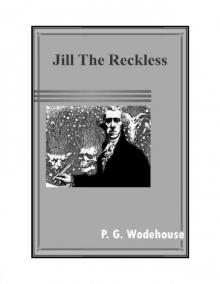 Jill the Reckless
Jill the Reckless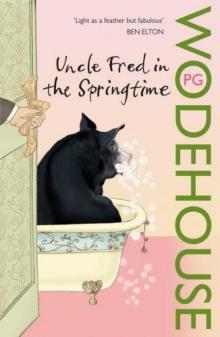 Uncle Fred in the Springtime
Uncle Fred in the Springtime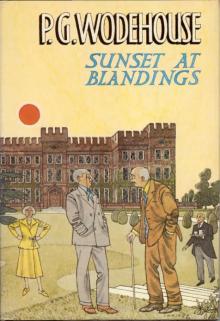 Sunset at Blandings
Sunset at Blandings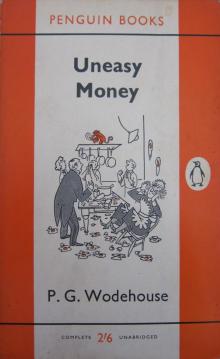 Uneasy Money
Uneasy Money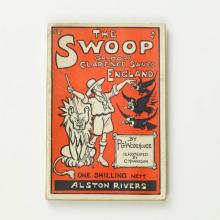 The Swoop! or, How Clarence Saved England: A Tale of the Great Invasion
The Swoop! or, How Clarence Saved England: A Tale of the Great Invasion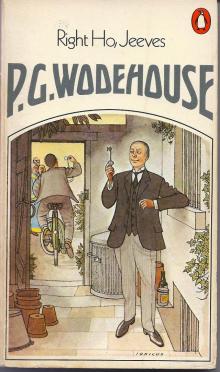 Right Ho, Jeeves
Right Ho, Jeeves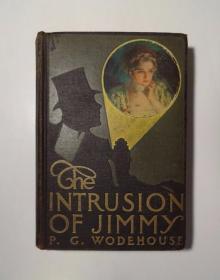 The Intrusion of Jimmy
The Intrusion of Jimmy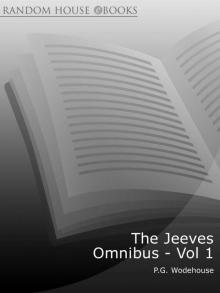 The Jeeves Omnibus - Vol 1:
The Jeeves Omnibus - Vol 1: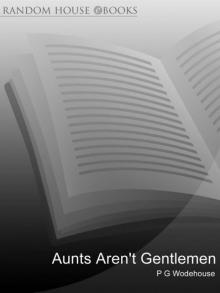 Aunts Aren't Gentlemen:
Aunts Aren't Gentlemen: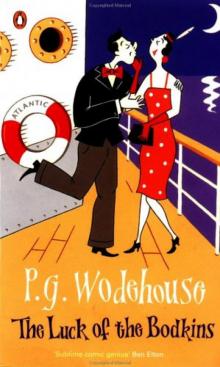 The Luck of the Bodkins
The Luck of the Bodkins The Little Nugget
The Little Nugget Money for Nothing
Money for Nothing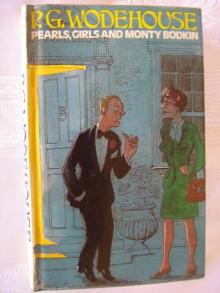 Pearls, Girls and Monty Bodkin
Pearls, Girls and Monty Bodkin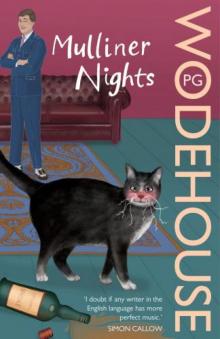 Mulliner Nights
Mulliner Nights Blandings Castle and Elsewhere
Blandings Castle and Elsewhere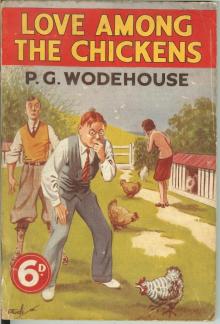 Love Among the Chickens
Love Among the Chickens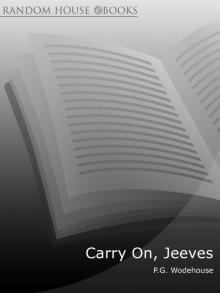 Carry On, Jeeves!
Carry On, Jeeves!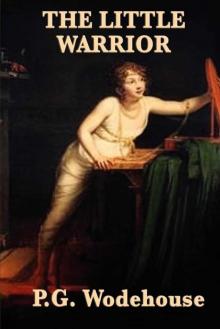 The Little Warrior
The Little Warrior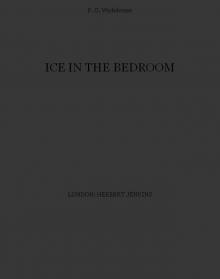 Ice in the Bedroom
Ice in the Bedroom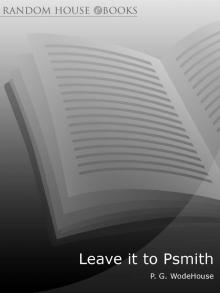 Leave It to Psmith
Leave It to Psmith Thank You, Jeeves:
Thank You, Jeeves: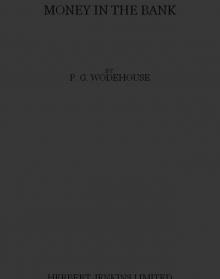 Money in the Bank
Money in the Bank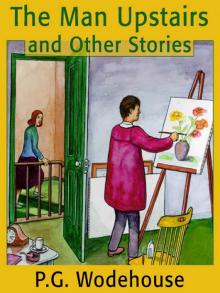 The Man Upstairs and Other Stories
The Man Upstairs and Other Stories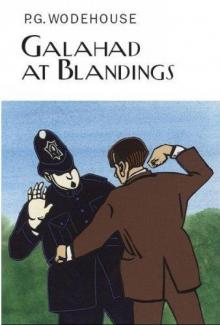 Galahad at Blandings
Galahad at Blandings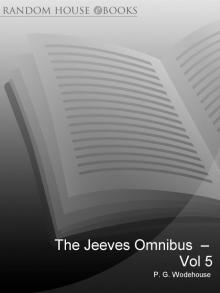 The Jeeves Omnibus Vol. 5
The Jeeves Omnibus Vol. 5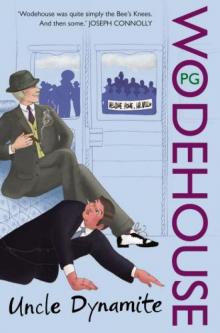 Uncle Dynamite
Uncle Dynamite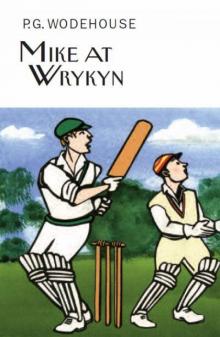 Mike at Wrykyn
Mike at Wrykyn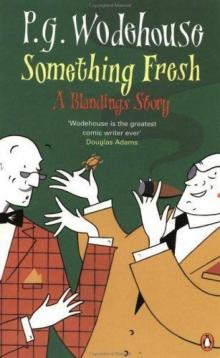 Something Fresh
Something Fresh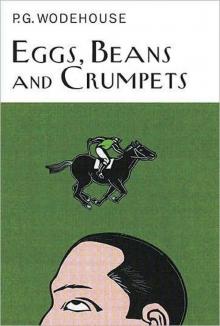 Eggs, Beans and Crumpets
Eggs, Beans and Crumpets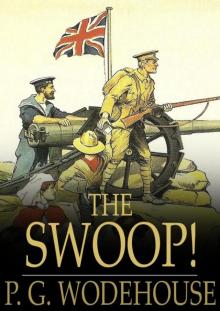 The Swoop: How Clarence Saved England (Forgotten Books)
The Swoop: How Clarence Saved England (Forgotten Books)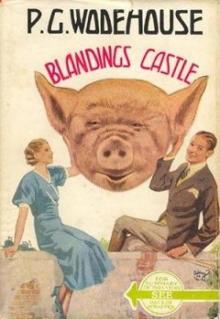 Blanding Castle Omnibus
Blanding Castle Omnibus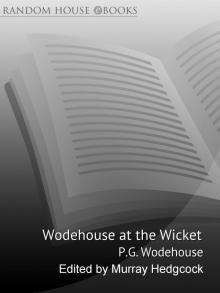 Wodehouse at the Wicket: A Cricketing Anthology
Wodehouse at the Wicket: A Cricketing Anthology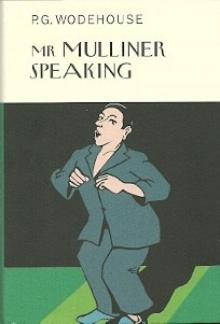 Mr. Mulliner Speaking
Mr. Mulliner Speaking Hot Water
Hot Water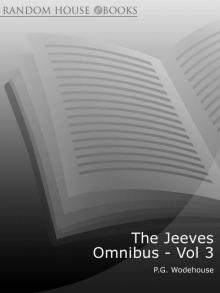 The Jeeves Omnibus - Vol 3: The Mating Season / Ring for Jeeves / Very Good, Jeeves
The Jeeves Omnibus - Vol 3: The Mating Season / Ring for Jeeves / Very Good, Jeeves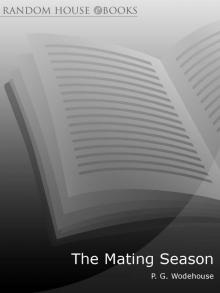 The Mating Season
The Mating Season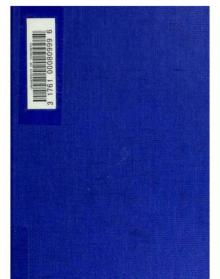 Meet Mr. Mulliner
Meet Mr. Mulliner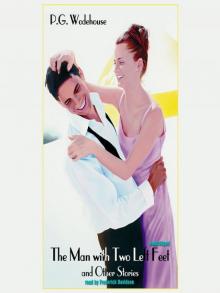 The Man with Two Left Feet, and Other Stories
The Man with Two Left Feet, and Other Stories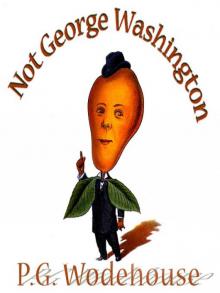 Not George Washington — an Autobiographical Novel
Not George Washington — an Autobiographical Novel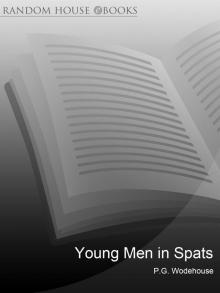 Young Men in Spats
Young Men in Spats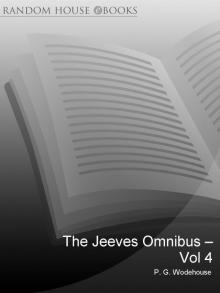 The Jeeves Omnibus Vol. 4
The Jeeves Omnibus Vol. 4 A Pelican at Blandings:
A Pelican at Blandings: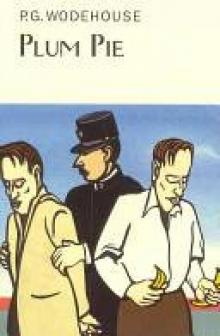 Plum Pie
Plum Pie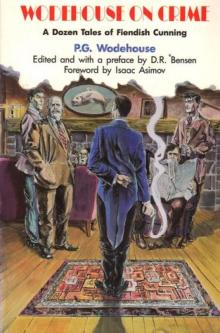 Wodehouse On Crime
Wodehouse On Crime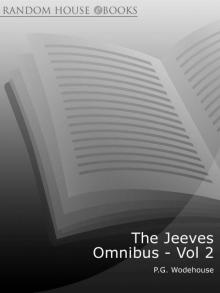 The Jeeves Omnibus Vol. 2: Right Ho, Jeeves / Joy in the Morning / Carry On, Jeeves
The Jeeves Omnibus Vol. 2: Right Ho, Jeeves / Joy in the Morning / Carry On, Jeeves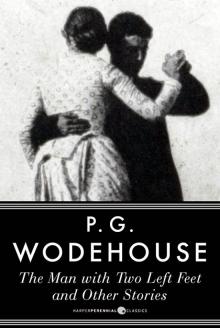 The Man With Two Left Feet
The Man With Two Left Feet Full Moon:
Full Moon: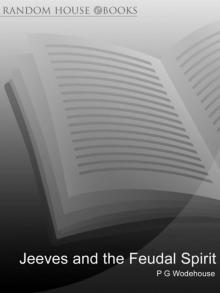 Jeeves and the Feudal Spirit:
Jeeves and the Feudal Spirit: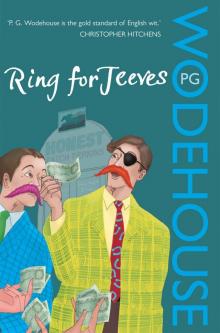 Ring For Jeeves
Ring For Jeeves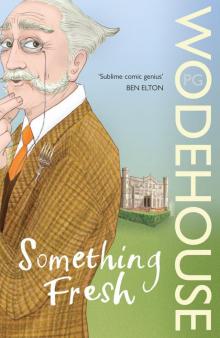 Something New
Something New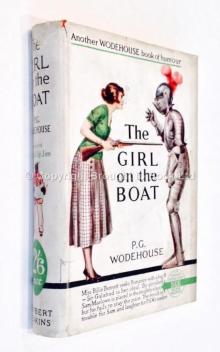 The Girl on the Boat
The Girl on the Boat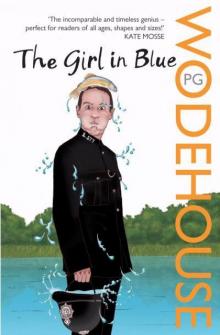 The Girl in Blue
The Girl in Blue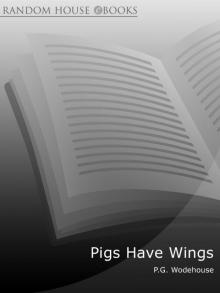 Pigs Have Wings:
Pigs Have Wings: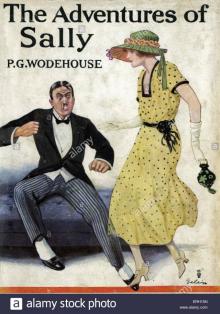 The Adventures of Sally
The Adventures of Sally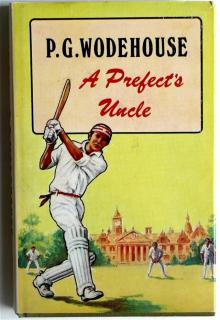 A Prefect's Uncle
A Prefect's Uncle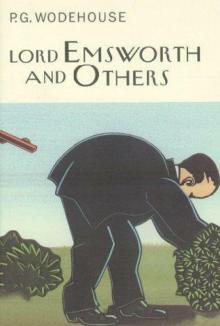 Lord Emsworth and Others
Lord Emsworth and Others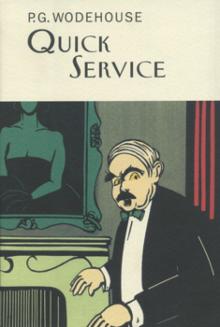 Quick Service
Quick Service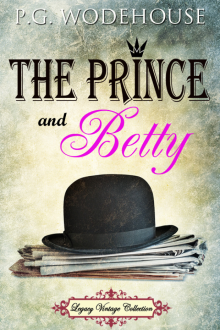 The Prince and Betty
The Prince and Betty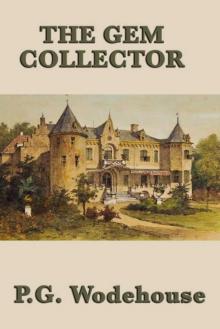 The Gem Collector
The Gem Collector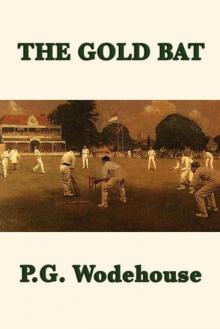 The Gold Bat
The Gold Bat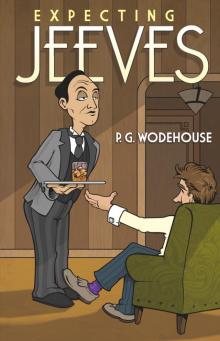 Expecting Jeeves
Expecting Jeeves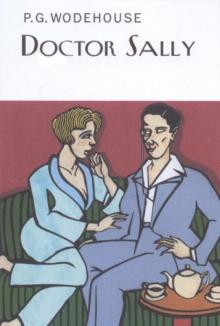 Doctor Sally
Doctor Sally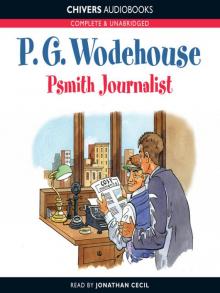 Psmith, Journalist
Psmith, Journalist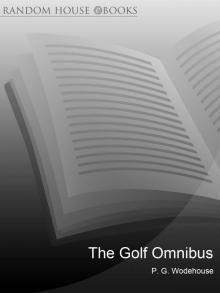 The Golf Omnibus
The Golf Omnibus Heavy Weather
Heavy Weather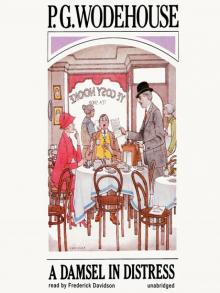 A Damsel in Distress
A Damsel in Distress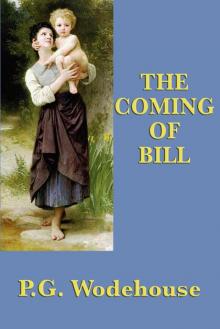 The Coming of Bill
The Coming of Bill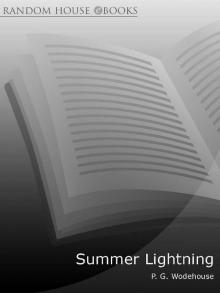 Summer Lightning
Summer Lightning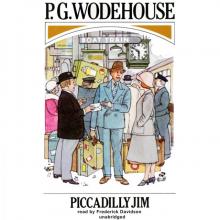 Piccadilly Jim
Piccadilly Jim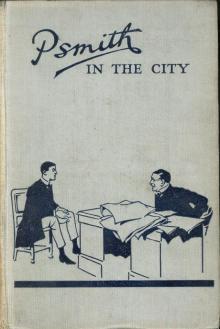 Psmith in the City
Psmith in the City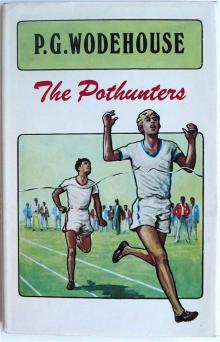 The Pothunters
The Pothunters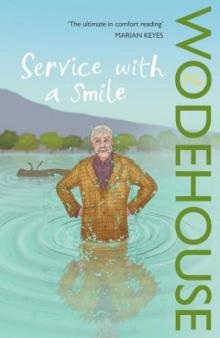 Service With a Smile
Service With a Smile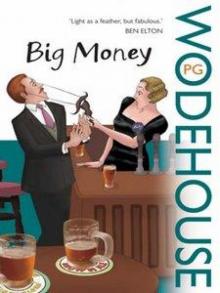 Big Money
Big Money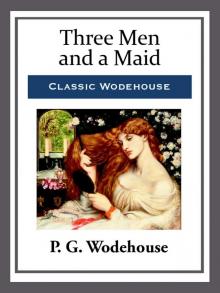 Three Men and a Maid
Three Men and a Maid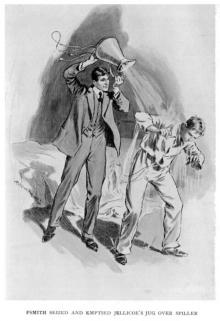 Mike and Psmith
Mike and Psmith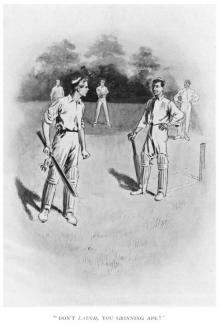 Mike
Mike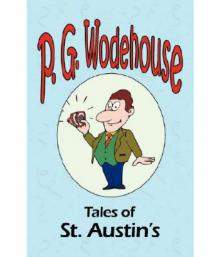 Tales of St. Austin's
Tales of St. Austin's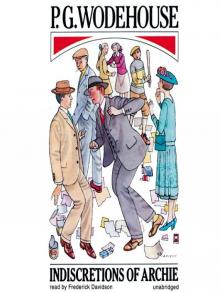 Indiscretions of Archie
Indiscretions of Archie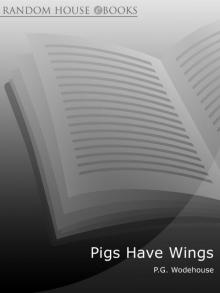 Pigs Have Wings
Pigs Have Wings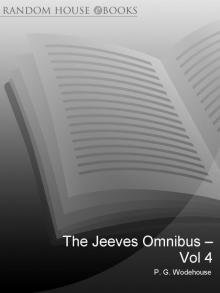 The Jeeves Omnibus - Vol 4: (Jeeves & Wooster): No.4
The Jeeves Omnibus - Vol 4: (Jeeves & Wooster): No.4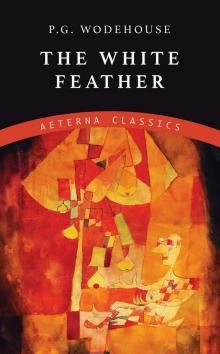 The White Feather
The White Feather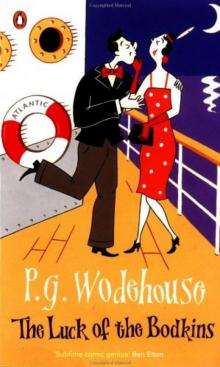 Luck of the Bodkins
Luck of the Bodkins THE SPRING SUIT
THE SPRING SUIT Full Moon
Full Moon Very Good, Jeeves
Very Good, Jeeves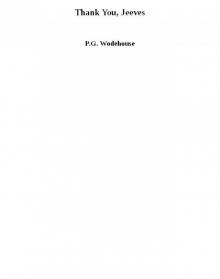 Thank You, Jeeves
Thank You, Jeeves Reginald's Record Knock.
Reginald's Record Knock.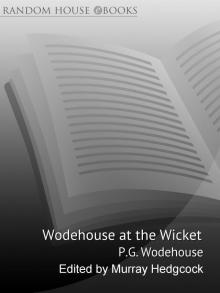 Wodehouse At the Wicket
Wodehouse At the Wicket LADIES AND GENTLEMEN V. PLAYERS
LADIES AND GENTLEMEN V. PLAYERS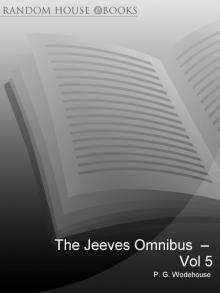 The Jeeves Omnibus - Vol 5: (Jeeves & Wooster)
The Jeeves Omnibus - Vol 5: (Jeeves & Wooster)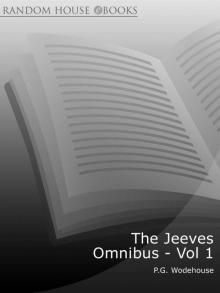 The Jeeves Omnibus - Vol 1: (Jeeves & Wooster): No.1
The Jeeves Omnibus - Vol 1: (Jeeves & Wooster): No.1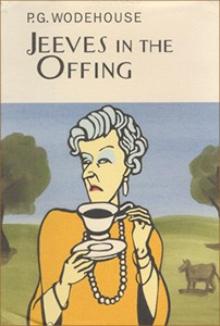 Jeeves in the offing jaw-12
Jeeves in the offing jaw-12